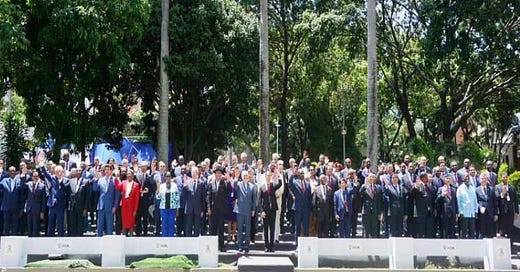Dialogue among Civilizations
The “Clash of Civilizations” revisited, versus the call of the peoples
In 2019 in Caracas, Venezuela, the heads of state and foreign ministers of the 220 member nations of the Non-Aligned Movement declared the importance of a dialogue among civilizations.
“The Ministers noted that the world today is composed of States with diverse political, economic, social and cultural systems and religions determined by their history, traditions, values and cultural diversity, whose stability can be guaranteed by the universal recognition of their right to freely determine their own approach towards progressive development. In this context, they emphasized that respect for the diversity of such systems and approaches is a core value which relations and cooperation among States in an increasingly globalizing world should be based on, with the aim of contributing to establishing a peaceful and prosperous world, a just and equitable world order, and an environment conducive to exchanging huma…



